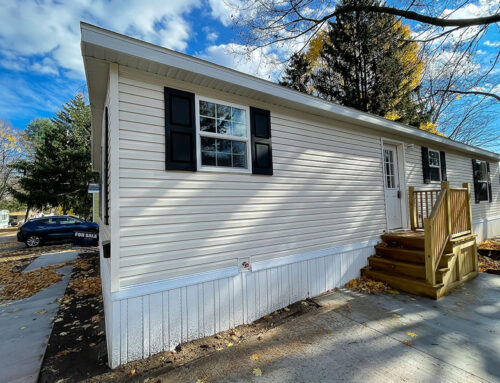I’ve called the Garden State home my entire life and so has most of my family. We’re a pretty tight bunch too, always leaning on each other for advice and support. My brother, for example, is a doctor and gets asked everything from what to do for sore joints to which fruits and vegetables are best. Being a professional real estate investor, I’m the one everybody comes to when they want to know if it’s prudent to invest in real estate after retirement or whether updating a bathroom will improve the property value.
That said, I was still surprised when my brother’s kid, Brett, came to me wanting to know how to buy foreclosed homes in NJ. I was sure he was heading off to medical school in the fall to follow in his pop’s footsteps. As it turns out, he wants to follow in mine.
Knowing how to buy a foreclosed home in NJ can potentially pay off, I told him. But, what seems like a bargain is not always a good deal in the end. Here are some of the essential tips that I shared with Brett for avoiding dead-end deals so you can find the best investment opportunities in the Garden State.
Should You Buy Foreclosed Homes in NJ?
The current state of foreclosure activity in New Jersey is grim for homeowners, to say the least. Since 2015, the state has consistently had the highest foreclosure rate in the nation. Although the number of foreclosures is steadily dropping in most other areas of the country, my home state has actually experienced foreclosures at numbers higher than pre-recession totals. And, some areas like Atlantic City and Trenton have the highest rates.
So, is this a good time to learn how to buy foreclosed homes in NJ? If you’re a budding real estate investor, like Brett, or a more seasoned one, like myself, the ongoing foreclosure crisis in New Jersey gives a fairly clear-cut answer to that question. Buying and renovating foreclosed homes is one of the fastest and most rewarding ways to enter the real estate business.
How to Buy Foreclosed Homes in NJ
Just because foreclosure rates are high doesn’t mean it’s easy to find a good deal, especially if you’re just starting out. So, since I’ve been doing this for a while, I’ll give you a few hints on how to buy foreclosed homes in NJ. Here’s a few of your top options:
OPTION 1: COUNTY SHERIFF SALES
Most counties throughout New Jersey hold public auctions on lender-foreclosed homes at sheriff sales. You can usually find a list of properties, with auction dates and times, advertised in local newspapers and on the sheriff’s website. Sale terms and starting bids are often online too, as well as updates about the property’s foreclosure status and, sometimes, whether there are any known liens, back taxes, or unpaid utility bills.
Deposits can be substantial and must be paid in cash or a cash equivalent, like a cashier’s check, on auction day. In Middlesex and Essex Counties, for example, 20% down is required of the highest bidder. But, in these counties, the balance isn’t due for another two and four weeks respectively—a longer-than-average timeline for closing on an auction house. Ideally, this gives you some time to work in a home inspection and uncover any other undisclosed encumbrances on the property.
⇨ The Downside
However, buying a foreclosure auction home is never that easy—especially in New Jersey. You’re never guaranteed access to the property before the bidding and whatever your due diligence reveals is yours to deal with. So, any structural issues, uncooperative tenants, or unpaid water charges become your problem.
Sure, you can back out of the sale. But, you’ll pay for it in interest, a lost deposit, the cost to auction the house again, or the difference should the home sell for less than your original bid. Even if it turns out you do have a good deal on your hands, the court can reject your offer, or give the homeowner more time to redeem the property—and leave you empty-handed.
OPTION 2: GOVERNMENT AGENCIES
Many government agencies, like the U.S. Department of Veterans Affairs, originate home loans and some, like Fannie Mae, also buy them from other lenders. When homeowners can’t meet their mortgage obligations for any reason, these agencies will start foreclosure proceedings. You can search for a list of foreclosed homes by state on their respective websites and, usually, find detailed descriptions and pictures in addition to property tax rolls, school district info, and maps of the area. Since these homes get assigned a licensed real estate agent to handle the sale, you can often find them on sites like the New Jersey Multiple Listing Service (NJMLS), too.
⇨ The Downside
Unfortunately, it’s pretty tough to invest in New Jersey real estate using government agencies as a source for distressed and discounted properties—and not just because each one has its own buying guidelines that you’ll have to get to know. These homes generate a lot of interest from owner-occupants, in addition to other investors, since they’re listed publicly on the MLS. And, often, it’s the owner-occupants, as well as non-profits and other government entities, that get first dibs. Plus, the listing agents who work with these government agencies are necessarily loyal to their clients, not you. So, the chance of getting your offer in—and accepted—while the getting’s good tends to look pretty bad.
OPTION 3: BANKS AND CREDIT UNIONS
Banks and credit unions will absorb properties into their inventory of foreclosed homes after the court-ordered sheriff sale and attempt to sell them to the public directly. This can happen whether or not the auction was successful since the lender is sometimes the highest bidder at a sheriff’s sale. Like government agencies, traditional lenders typically use real estate agents to assist with the sale. So, you can find these properties on a bank or credit union’s website as well as on the MLS. The process of buying from a traditional lender can be smoother than other options since there is no government red tape or court approval to deal with. And, if you invest in an area like Atlantic City—home to the highest number of foreclosures in the nation—your selection of homes is considerable.
⇨ The Downside
Except, the price tag for these homes can be considerable too. These days, banks and credit unions often list a foreclosed home at or close to full market value, whether they’ve made repairs or not. And, you’ll be competing with other buyers using conventional sources of financing that allows them to pay what the bank wants. So, to beat out the competition, you’ll likely have to overpay and that’ll only beat your potential returns into the ground.
Sure, I’ve come across some winners through sheriff’s sales, government agencies, and even lender holdings—but all the legwork and the unknowns can create uncertainty. Dealing directly with distressed homeowners in the pre-foreclosure period has yielded much better results. In many cases, an anxious seller may be willing to reach an agreement before the judicial authorities take ownership of the property. As difficult as the situation might be, my involvement has often amounted to enabling a much-needed exit for the seller while adding a deeply discounted asset to my portfolio.
That’s why I recommend a fourth option:
OPTION 4: BREAK AWAY FROM THE FORECLOSURE RAT RACE
Of course, it’s good to know that you’ve got a few places to look for foreclosed homes if you’re interested in buying and renovating property as inexpensively as possible. But, I think it’s better to buy well before the foreclosure process even begins. There’s less competition, less red tape, and less of a chance you’ll end up with major repairs that turn your cheap property into an expensive mistake. It also gives a homeowner in distress an opportunity to get out of the financial gutter quickly and with less embarrassment. And, because New Jersey has one of the longest timelines from foreclosure start to finish, there’s time for you to find and help them.
Finding pre-foreclosure homes also allows you to find out as much as possible before buying a foreclosure property. You can accurately evaluate the cost of repairs or uncover the home’s glaring shortcomings before you get yourself sucked into a potential money pit. And if you’re learning how to buy foreclosed homes in NJ for the first time, the process is far less competitive. By comparison, a publicly-advertised auction listing will likely draw the interest of more bargain hunters than would be seen in the pre-foreclosure market. With a pre-foreclosure, you’ll avoid a bidding war.
If you want to take advantage of pre-foreclosures, however, you need to get your hands on some reliable home seller leads.
How to Connect with Distressed NJ Homeowners Pre-Foreclosure
Without a doubt, getting motivated home seller leads can be a challenge for most investors. But, being an independently owned and operated HomeVestors® franchisee makes it much simpler. It was only after I joined the “We Buy Ugly Houses®” team, and realized the value of having motivated sellers come to me, that I was able to turn my luck and livelihood around. In fact, without the marketing and lead generation tools that HomeVestors® offers its franchisees, I might still be chasing foreclosures—and my tail.
Redirect your investment strategy by connecting with distressed homeowners before they’re foreclosed on. Contact HomeVestors® today to discuss joining Brett, me, and the rest of the team.
Each franchise office is independently owned and operated.
Contact
"*" indicates required fields





